When composing a contract dissolution notice, you may have explored examples of contract termination letters to inform your writing process. Numerous approaches exist for crafting a contract termination notice or an agreement discontinuation letter; however, contract annulment letters designed for a different purpose may not suit your specific requirements. Assembling a notice to dissolve a contract or termination of services correspondence necessitates incorporating the essential elements to ensure the letter withstands legal scrutiny.
Table of Contents
Termination Letter Templates
Navigate the process of terminating employment with professionalism and clarity using our comprehensive collection of Termination Letter Templates. These customizable and printable templates provide a formal and legally recognized framework for communicating the decision to end an employment relationship. Our templates cover essential aspects such as the effective date of termination, reasons for termination, severance details, and any additional provisions specific to the situation.
By utilizing our Termination Letter Templates, you can ensure a respectful and compliant termination process, maintain positive employer-employee relationships to the extent possible, and protect your business interests. Streamline the termination process, uphold legal requirements, and provide clarity to both parties involved with our user-friendly templates. Download now and confidently navigate the complexities of terminating employment with our professional Termination Letter Templates.
What is a Notice of Contract Termination?

A Notice of Contract Termination is a formal written document that communicates the intention of one party to end a contractual agreement with another party. It serves as a notification that the contractual relationship between the parties will be dissolved, typically in accordance with the terms and conditions outlined in the original contract.
This notice may be required due to various reasons, such as breach of contract, the expiration of the agreed-upon term, mutual consent to terminate, or other circumstances specified in the contract. A well-crafted Notice of Contract Termination should clearly outline the reasons for termination, the effective date of termination, and any relevant provisions or obligations that need to be fulfilled by either party prior to the termination taking effect.
Why are letters of contract termination important?
Letters of contract termination are important for several reasons, as they serve to:
Protect legal rights: A well-drafted termination letter clearly outlines the reasons for ending the contract and refers to the relevant provisions within the agreement. This helps to protect the legal rights of the terminating party in case of future disputes or misunderstandings.
Provide formal notice: Termination letters serve as official documentation, notifying the other party of the intent to end the contractual relationship. This helps to avoid any ambiguity and ensures that both parties are aware of the termination and its effective date.
Establish a record: A termination letter creates a written record of the decision to end the contract, which can be useful for future reference or in case of legal proceedings.
Ensure compliance with contract terms: Most contracts include specific provisions regarding termination, such as notice periods or steps to be followed. A termination letter helps to ensure that the terminating party adheres to these terms, minimizing the risk of potential breaches.
Facilitate a smooth transition: By providing advance notice and outlining any outstanding obligations or actions required by either party, a termination letter can help to facilitate a smoother transition and minimize disruptions to ongoing operations or projects.
Maintain professionalism: A well-structured and respectfully written termination letter demonstrates professionalism and helps maintain a positive business relationship, even when the contractual agreement is coming to an end. This can be beneficial for preserving future business opportunities and maintaining a good reputation within the industry.
When Do Employers and Businesses Use Letters to End a Contract?
Employers and businesses use letters to end a contract in various situations, ensuring that the termination process is clear, transparent, and in accordance with the terms of the agreement. These situations may include:
Breach of contract: If a party fails to fulfill its contractual obligations or violates any terms of the agreement, the other party may choose to terminate the contract. A termination letter in this case would clearly state the breach and reference the specific provisions in the contract.
Expiration of the contract term: When a contract reaches its agreed-upon end date, a termination letter may be sent as a courtesy to remind the parties that the contractual relationship is concluding, especially if there is no intention to renew or extend the agreement.
Mutual agreement: If both parties mutually decide to end their contractual relationship before the term expires, a termination letter can be used to confirm and formalize their agreement. This letter would typically outline any terms or conditions associated with the early termination.
Termination for convenience: In certain cases, a contract may include a provision that allows one or both parties to terminate the agreement for convenience, without needing to provide a specific reason. A termination letter would still be necessary to provide notice of the intent to exercise this option.
Performance issues: If a party is not meeting performance expectations or is consistently underperforming, the other party may choose to terminate the contract. The termination letter would identify the performance concerns and reference the relevant contractual provisions that justify the termination.
Change in business circumstances: Businesses may experience changes in their needs, priorities, or strategies that require them to end a contract. In such cases, a termination letter would explain the reasons for the decision and any applicable contractual terms.
Financial constraints: If an employer or business faces financial difficulties that prevent them from continuing to honor a contract, they may send a termination letter to notify the other party. The letter should detail the financial challenges and refer to any relevant provisions within the contract that allow for termination under such circumstances.
Force majeure events: Unforeseen events or circumstances beyond a party’s control, such as natural disasters or geopolitical crises, may render it impossible or impractical to fulfill the contract. A termination letter would be used to invoke the force majeure clause and terminate the agreement.
In each of these situations, a comprehensive termination letter serves to formally communicate the reasons for ending the contract, provide notice to the other party, and comply with the terms and conditions of the agreement.
How Do You Politely Terminate a Contract With a Client?
Politely terminating a contract with a client involves clear communication, professionalism, and respect for the working relationship. Here are some tips to help you terminate a contract with a client amicably:
Review the contract: Before proceeding, carefully review the terms of the agreement to understand the termination provisions, required notice period, and any specific procedures that must be followed.
Choose the right medium: Although a written termination letter is necessary for legal purposes, it may be appropriate to first discuss the matter with the client via phone or in-person, depending on the nature of the relationship.
Be honest and transparent: Clearly explain the reasons for terminating the contract, while remaining respectful and professional. Avoid placing blame or making accusations, and focus on the facts that led to the decision.
Provide sufficient notice: Ensure that you give the client adequate notice of the termination, as required by the contract or as a professional courtesy.
Offer assistance: If possible, offer to help the client with the transition, such as providing referrals to other service providers or assisting with the handover of any ongoing projects or tasks.
Use a professional tone: When writing the termination letter, use a professional and respectful tone. Express appreciation for the working relationship and maintain a positive, diplomatic tone throughout the letter.
Fulfill any outstanding obligations: If there are any remaining tasks or duties that need to be completed before the termination takes effect, make sure to fulfill them in a timely manner.
Be open to discussion: Encourage the client to reach out if they have any questions or concerns regarding the termination, and be willing to discuss the matter further if needed.
How to Write a Contract Termination Letter
Writing a contract termination letter involves several steps to ensure clarity, professionalism, and compliance with the terms of the agreement. Here is a step-by-step guide, with examples for each step:
Step 1: Review the contract
Before writing the letter, carefully review the contract to understand the termination provisions, including the required notice period, grounds for termination, and any specific procedures to follow.
Example: Refer to the original contract and identify the relevant clauses, such as Clause 8: Termination and Clause 9: Notice Period.
Step 2: Use a professional format
Use a standard business letter format, including the date, your contact information, the recipient’s contact information, a subject line, and a salutation.
Example:
[Your Name]
[Your Address]
[City, State, Zip Code]
[Date]
[Recipient’s Name]
[Recipient’s Address]
[City, State, Zip Code]
Subject: Termination of Contract [Contract Name or Number]
Dear [Recipient’s Name],
Step 3: State the purpose of the letter
Begin the letter by clearly stating the purpose, which is to terminate the contract. Mention the contract name or number, if applicable.
Example:
I am writing to formally notify you of our intention to terminate the contract [Contract Name or Number] between [Your Company Name] and [Recipient’s Company Name], effective [Termination Date].
Step 4: Explain the reason for termination
Provide a detailed explanation of the reason for terminating the contract, referencing the specific provisions within the contract that justify the termination.
Example:
Unfortunately, we have encountered several instances of non-compliance with the terms of our agreement. As outlined in Clause 8.2 of the contract, we have the right to terminate the agreement due to the following breaches: [List the breaches and the relevant contract clauses].
Step 5: Specify the termination date
Clearly state the effective date of termination, ensuring that it complies with the notice period required by the contract.
Example:
In accordance with Clause 9, which requires a [Notice Period] written notice, the contract shall be terminated on [Termination Date]. Please consider this letter as the formal notice of termination.
Step 6: Outline any outstanding obligations
If there are any remaining obligations or actions required by either party, list them in the letter.
Example:
As per our agreement, the following outstanding obligations must be fulfilled prior to the termination date:
[Obligation 1]
[Obligation 2]
[Obligation 3]
Step 7: Maintain professionalism
Express gratitude for the working relationship and maintain a professional tone throughout the letter.
Example:
We appreciate the efforts and contributions made by [Recipient’s Company Name] during our collaboration and regret that the relationship must come to an end. We hope to resolve this matter amicably and professionally.
Step 8: Close the letter
Conclude the letter with a closing statement, followed by your name, title, and signature.
Example:
If you have any questions or concerns regarding the termination, please do not hesitate to contact me. Thank you for your prompt attention to this matter.
Sincerely,
[Your Name]
[Your Title]
[Your Company Name]
FAQs
When should a contract termination letter be sent?
A contract termination letter should be sent in accordance with the notice period specified in the original contract. It’s essential to provide sufficient notice to the other party and ensure that you comply with the terms and conditions of the agreement.
Can I terminate a contract without a termination clause?
Terminating a contract without a termination clause can be challenging, as the contract may not specify the conditions under which the agreement can be ended. In such cases, you may need to negotiate with the other party to mutually agree on the termination or consult with a legal professional to determine the best course of action.
Is a contract termination letter legally binding?
A contract termination letter is considered legally binding if it adheres to the terms and conditions outlined in the original contract and provides sufficient notice as required by the agreement. The termination letter serves as official documentation and can be used as evidence in case of future disputes or legal proceedings.
What are the potential consequences of not sending a contract termination letter?
Failing to send a contract termination letter can lead to misunderstandings, legal disputes, and financial liabilities. It may also damage your professional reputation and harm future business relationships. Sending a contract termination letter ensures that you are complying with the terms of the agreement and protecting your legal rights.
When should a contract termination letter be sent?
A contract termination letter should be sent in accordance with the notice period specified in the original contract. It’s essential to provide sufficient notice to the other party and ensure that you comply with the terms and conditions of the agreement.
Can I terminate a contract without a termination clause?
Terminating a contract without a termination clause can be challenging, as the contract may not specify the conditions under which the agreement can be ended. In such cases, you may need to negotiate with the other party to mutually agree on the termination or consult with a legal professional to determine the best course of action.
Is a contract termination letter legally binding?
A contract termination letter is considered legally binding if it adheres to the terms and conditions outlined in the original contract and provides sufficient notice as required by the agreement. The termination letter serves as official documentation and can be used as evidence in case of future disputes or legal proceedings.
What are the potential consequences of not sending a contract termination letter?
Failing to send a contract termination letter can lead to misunderstandings, legal disputes, and financial liabilities. It may also damage your professional reputation and harm future business relationships. Sending a contract termination letter ensures that you are complying with the terms of the agreement and protecting your legal rights.
Can a contract be terminated by email?
While it is possible to terminate a contract by email, it is generally recommended to use a more formal method, such as a physical letter sent by certified mail with a return receipt requested. This ensures that there is a clear record of the termination notice and its delivery. However, always review the original contract to determine if it specifies a preferred method of communication for termination notices.
What is the difference between contract termination and contract cancellation?
Contract termination refers to the process of ending an ongoing contractual relationship, usually due to a breach of contract, expiration of the term, or mutual agreement. Contract cancellation, on the other hand, typically involves nullifying a contract before its terms come into effect, as if it never existed. This can occur due to misrepresentation, fraud, or other factors that render the contract invalid.
Can a contract be terminated unilaterally?
Whether a contract can be terminated unilaterally depends on the terms of the agreement. Some contracts include provisions that allow one party to terminate the agreement without the consent of the other party, usually for specific reasons such as a breach of contract, performance issues, or convenience. In cases where unilateral termination is not allowed by the contract, both parties must mutually agree to terminate the agreement.
What should I do if I receive a contract termination letter?
If you receive a contract termination letter, carefully review the letter and the original contract to ensure that the termination is valid and complies with the terms of the agreement. If you have any questions or concerns, contact the sender to discuss the matter further. You may also want to consult with a legal professional to understand your rights and obligations in the termination process.
What happens if a contract is terminated before its expiration date?
If a contract is terminated before its expiration date, the parties must comply with any relevant provisions outlined in the contract, such as fulfilling outstanding obligations, settling outstanding payments, or returning any confidential information or property. Depending on the terms of the agreement, there may also be penalties or consequences for early termination, such as fees or damages.
Can I terminate a contract if the other party has not signed it yet?
If the other party has not signed the contract, the agreement may not be legally binding, and you might be able to withdraw your offer without any consequences. However, it’s essential to communicate your decision to the other party promptly and confirm that they have not signed the contract. In some cases, oral agreements or other forms of acceptance may be legally binding, so it’s crucial to consult with a legal professional to understand your specific situation.





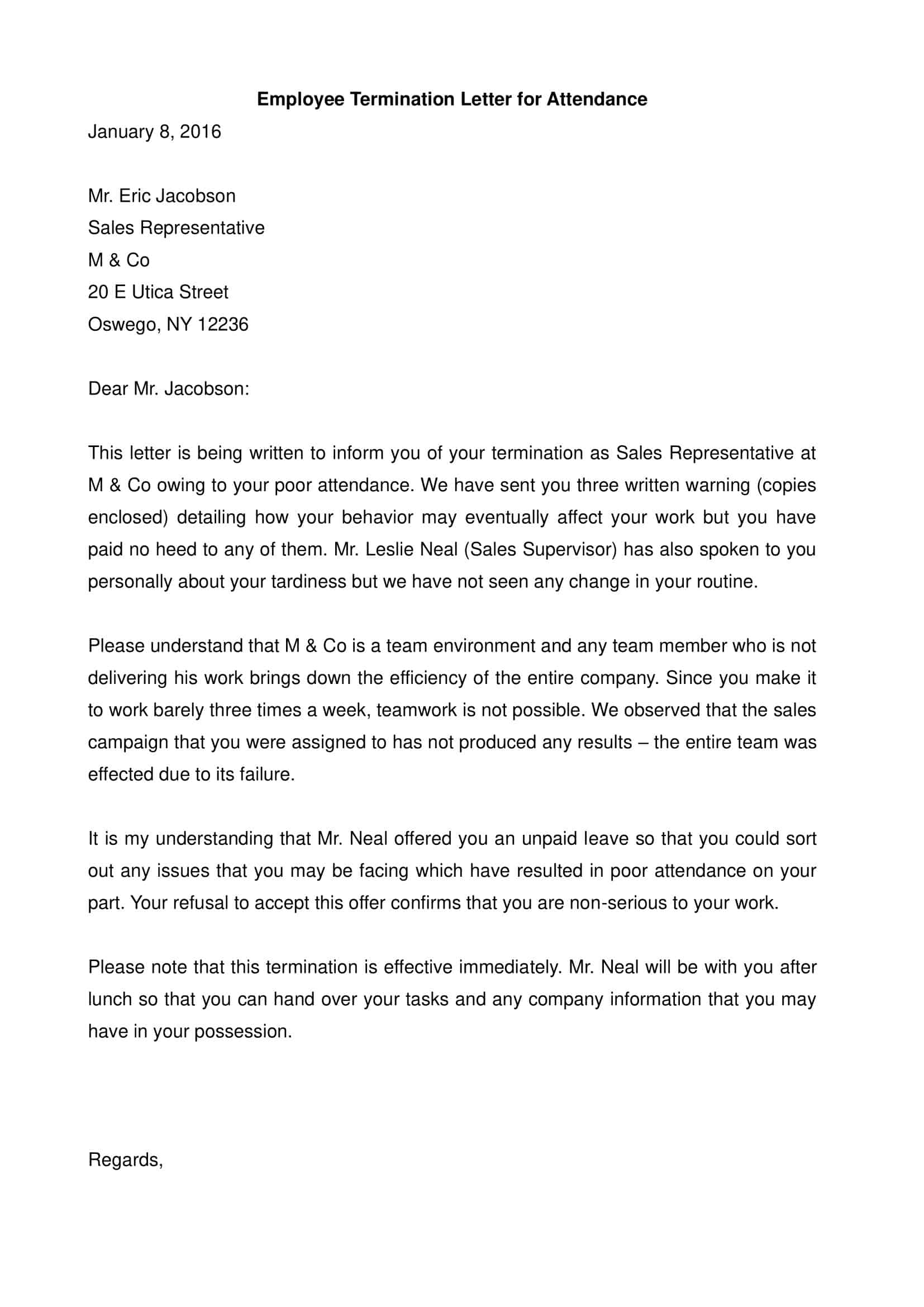
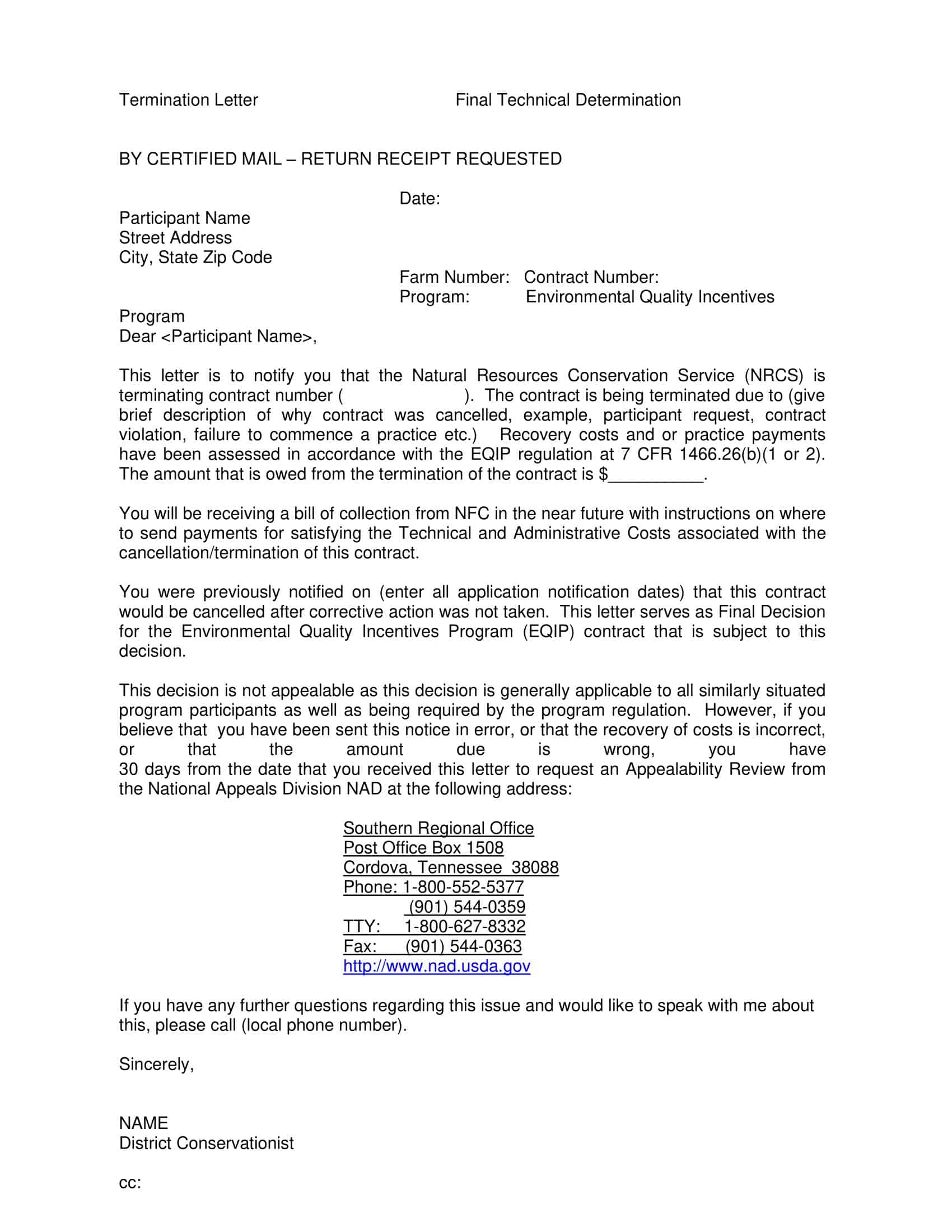





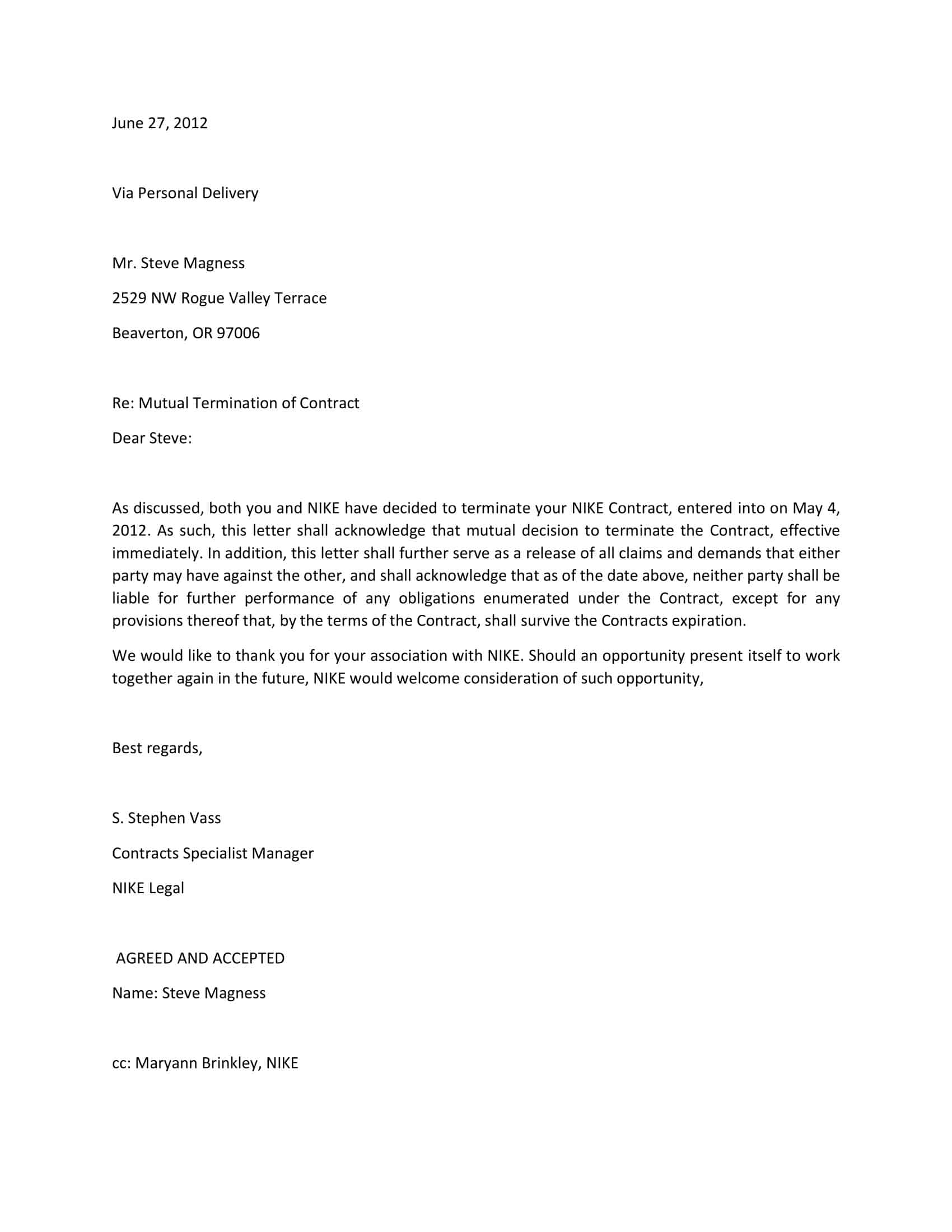








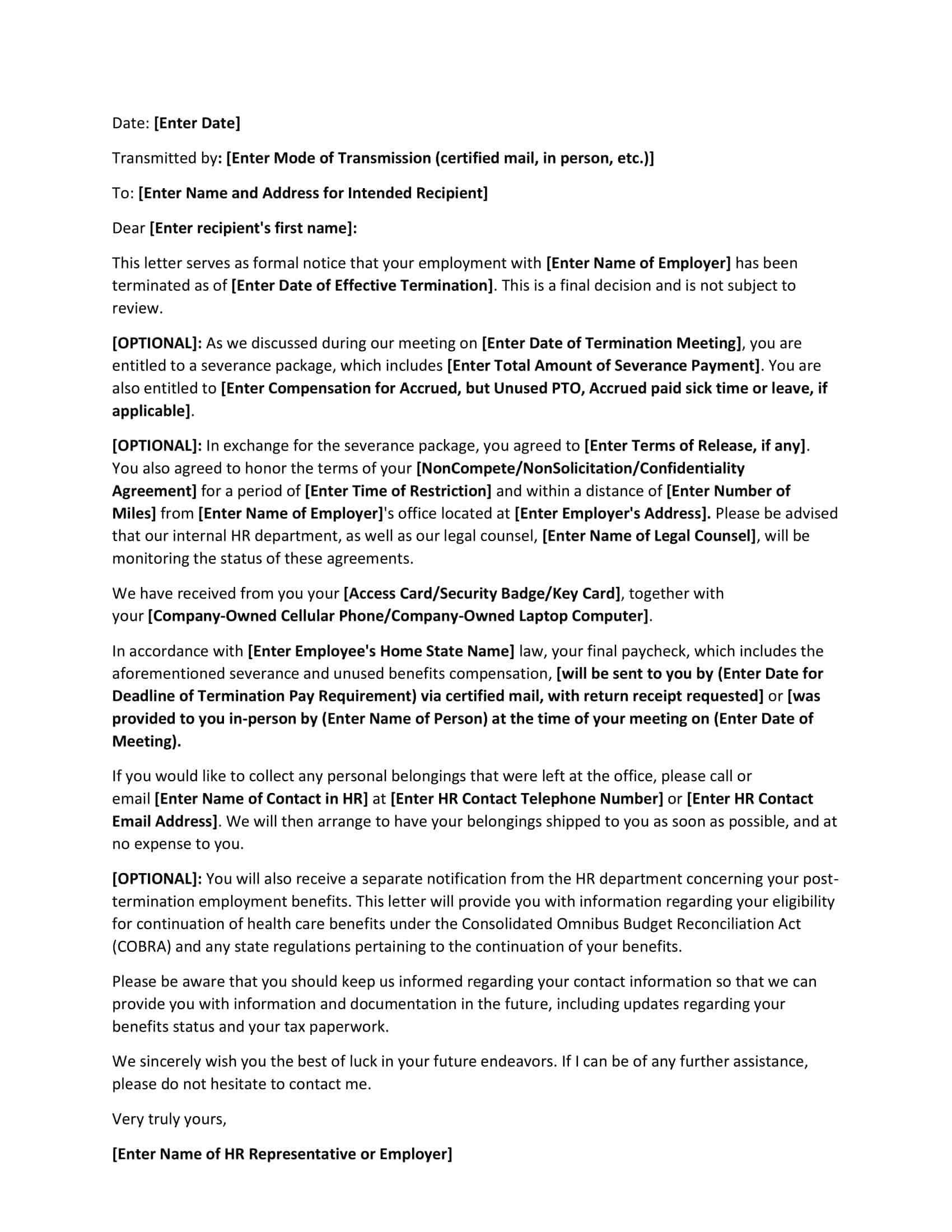
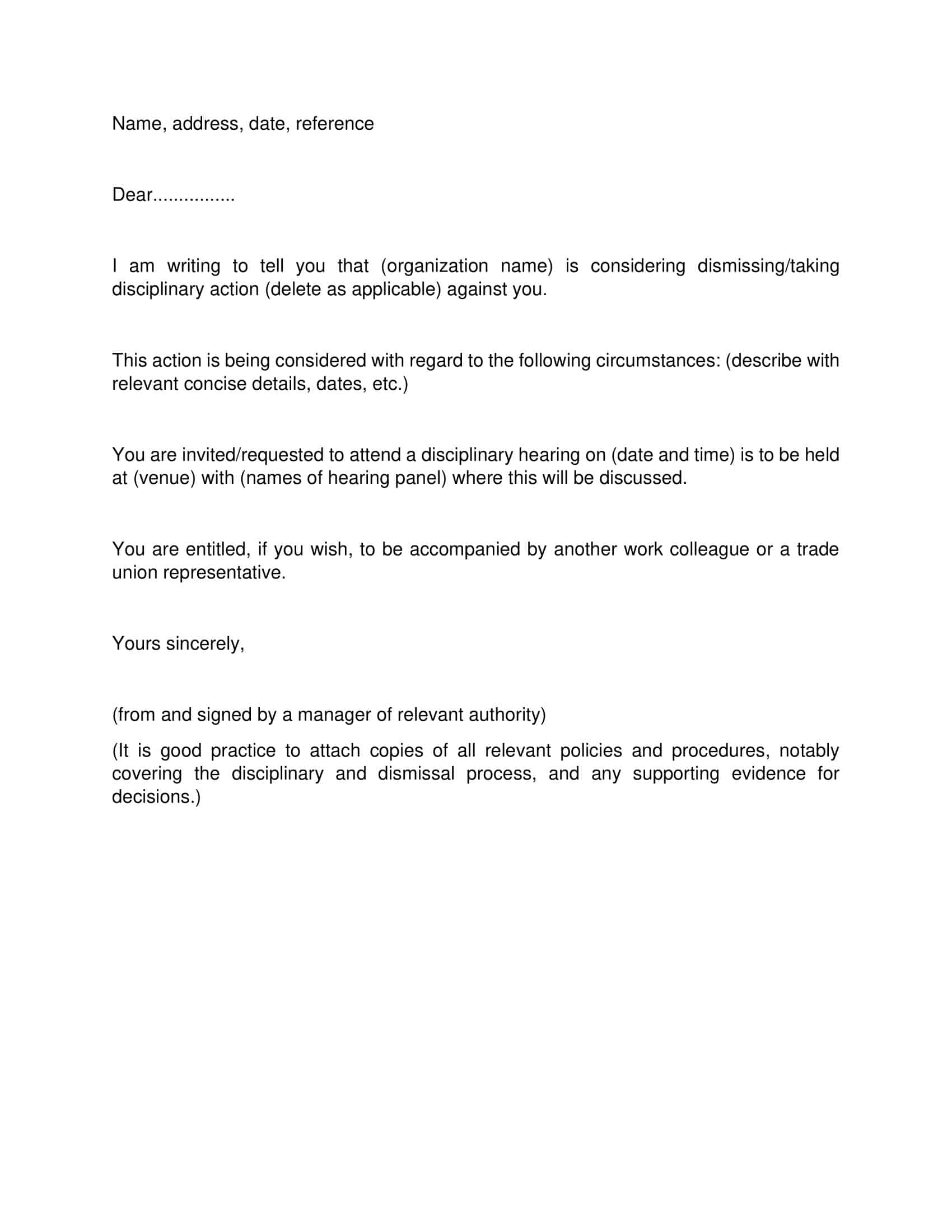






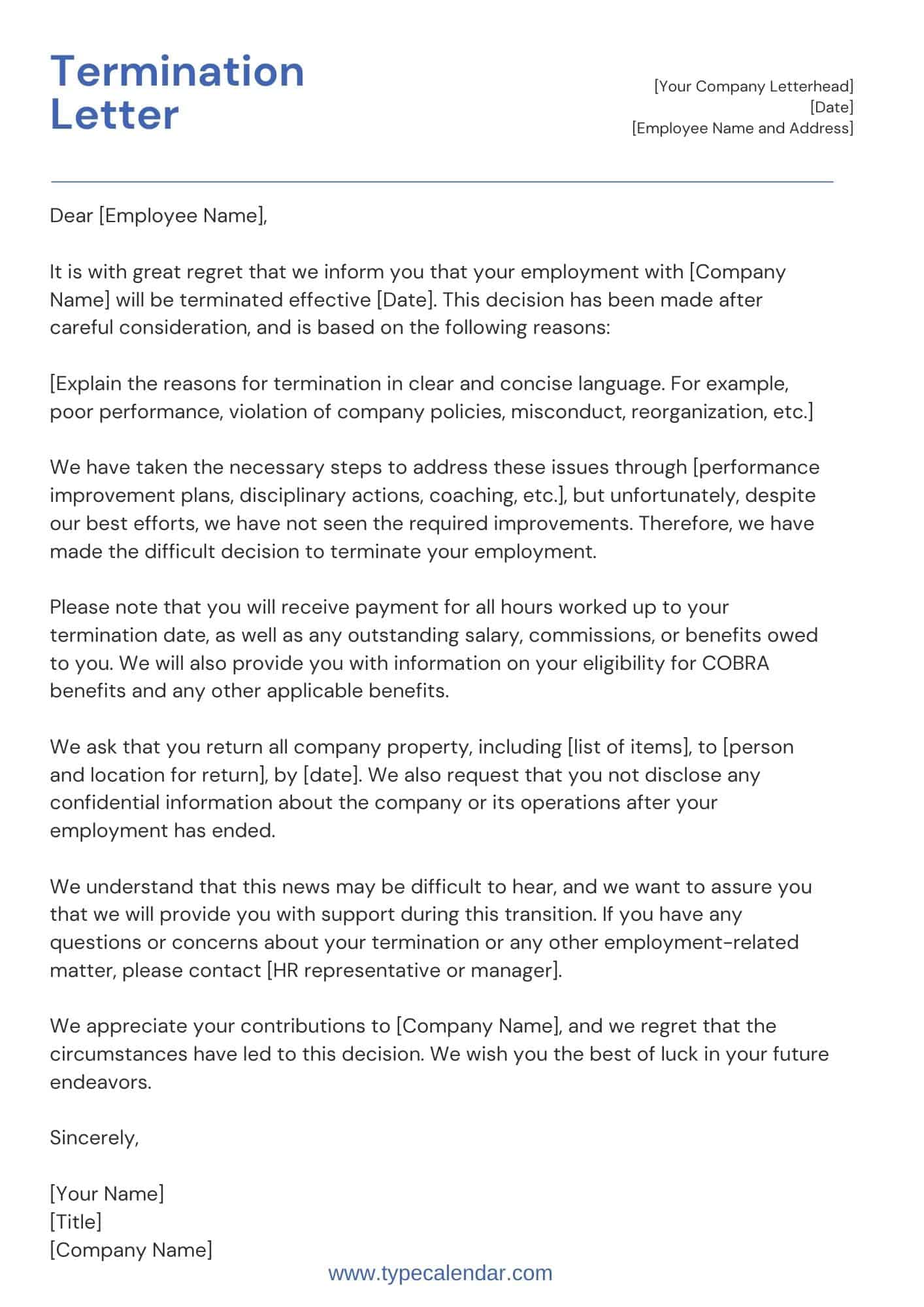





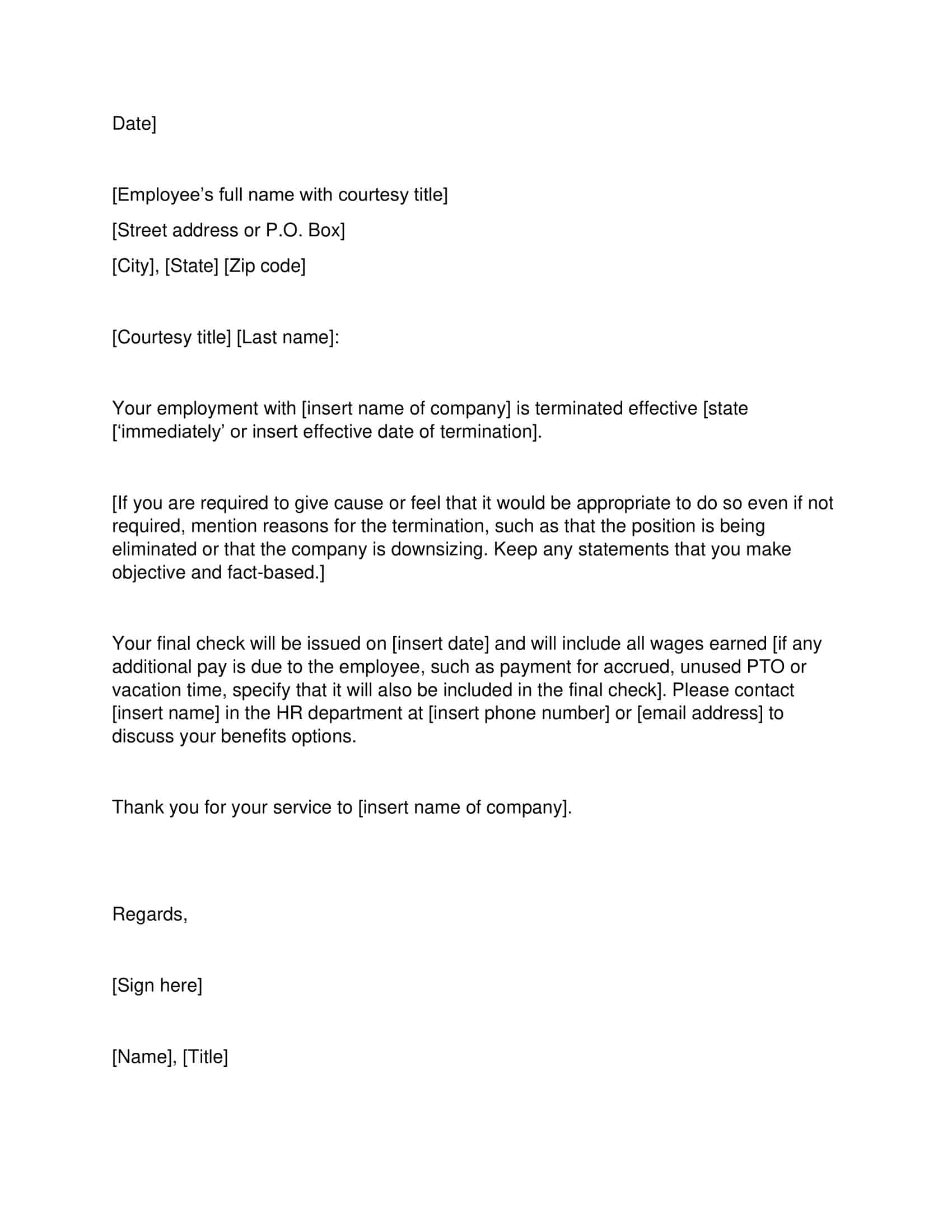

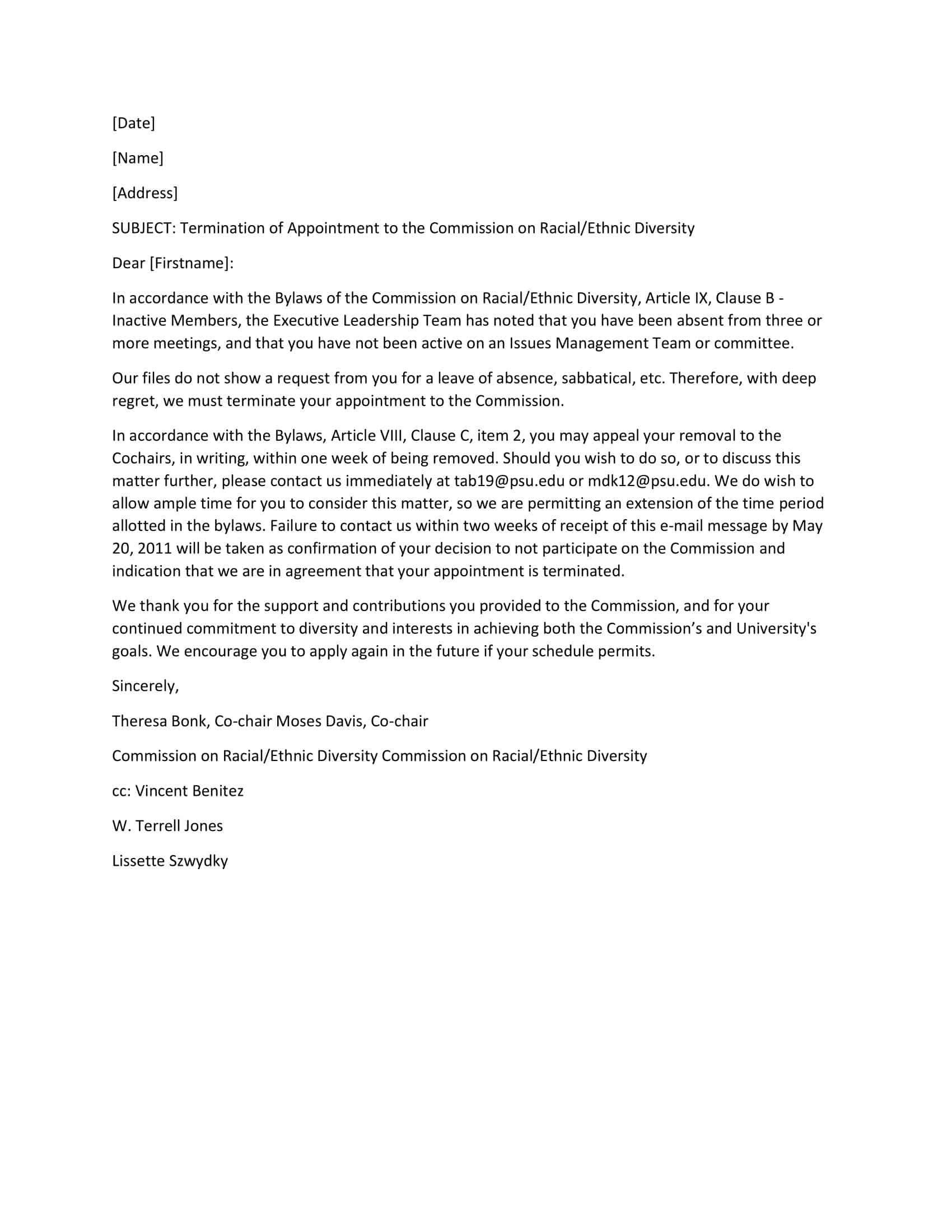

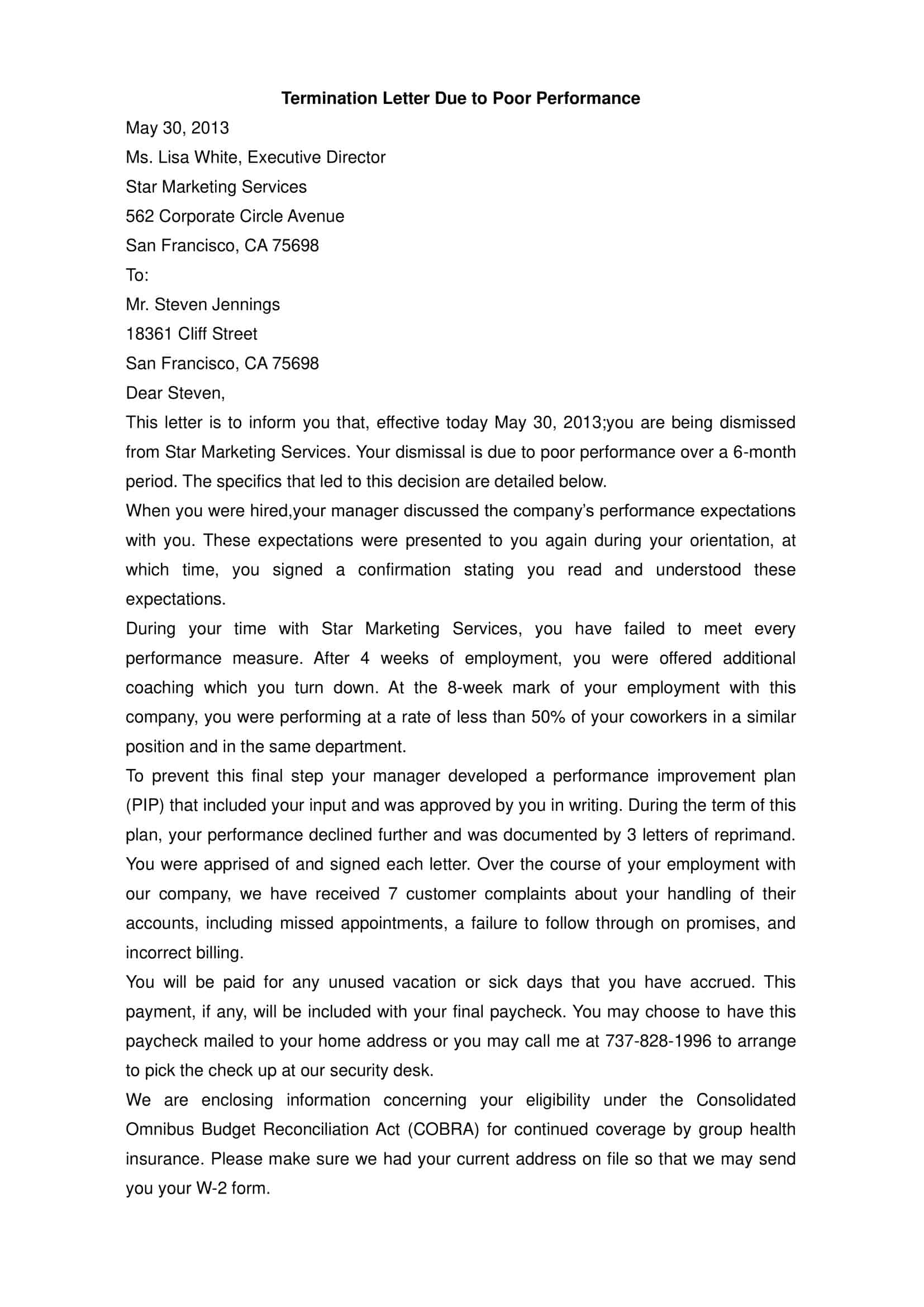
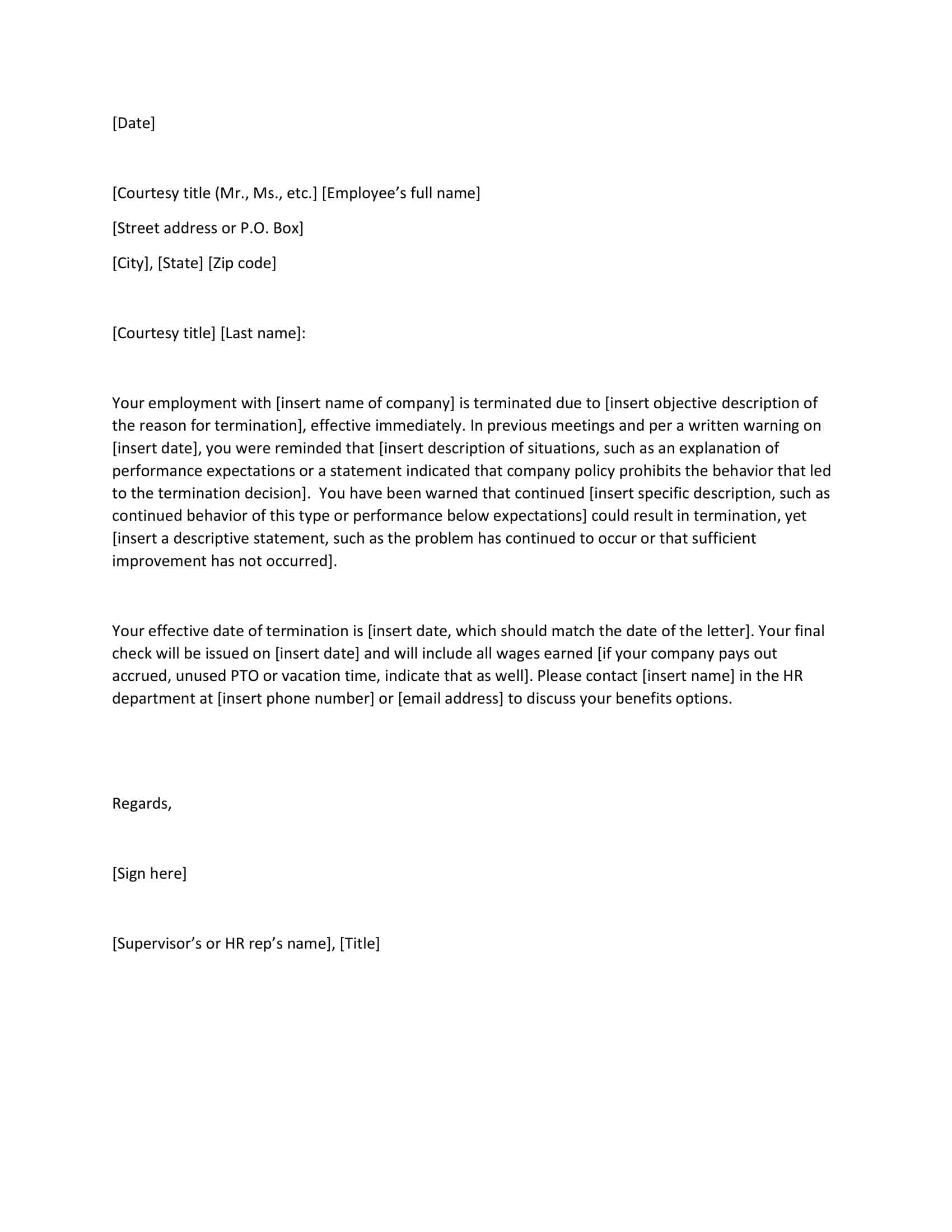
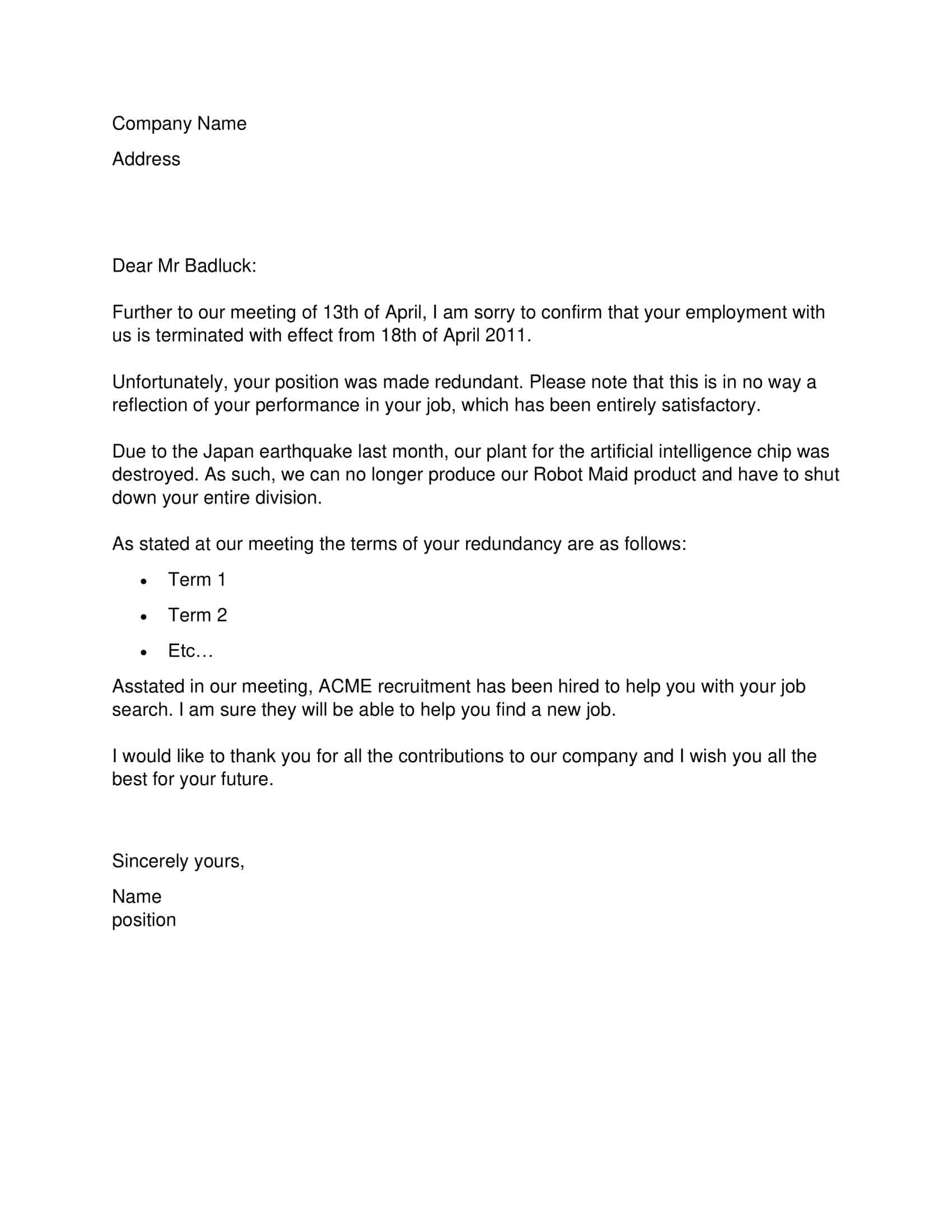
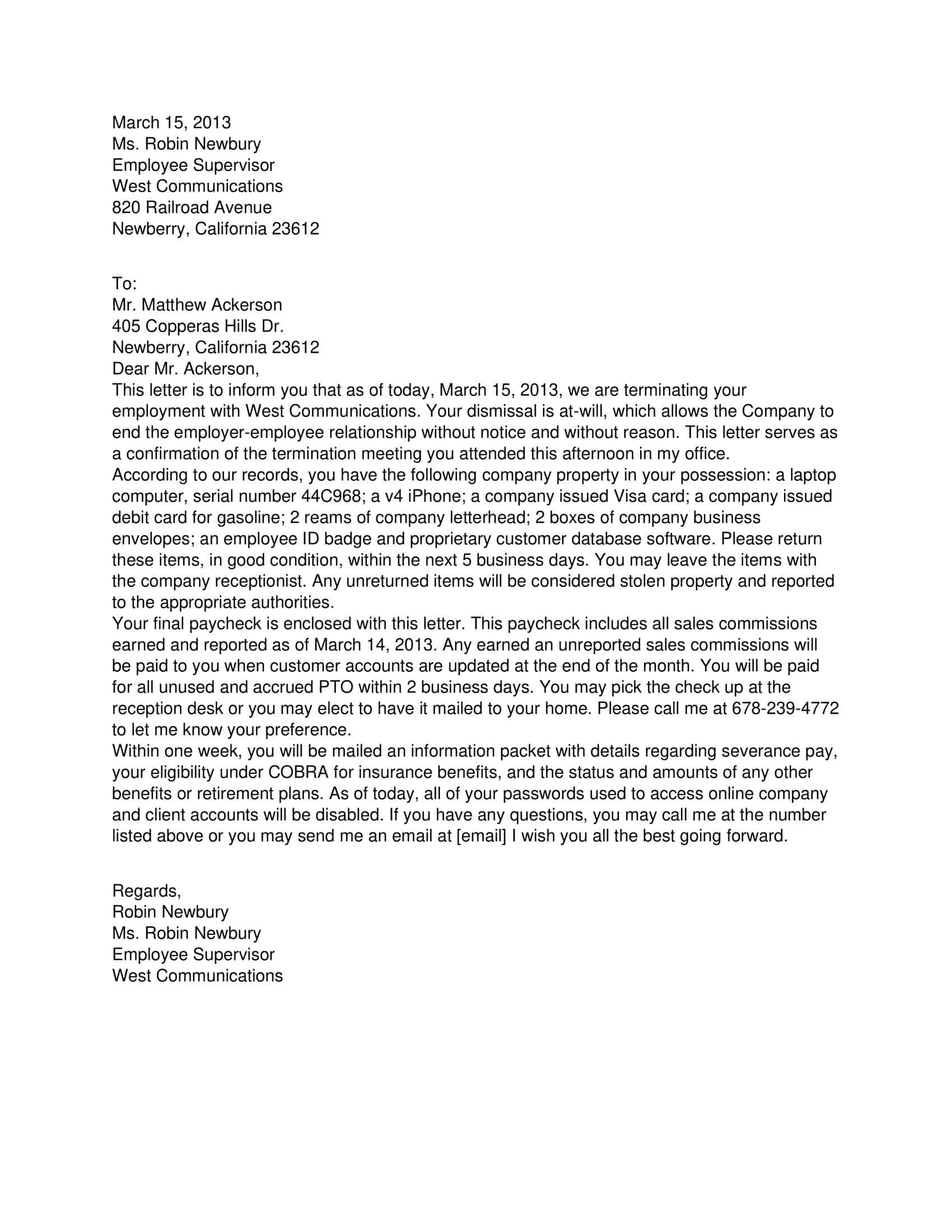
![Free Printable Friendly Letter Templates [PDF, Word, Excel] 1st, 2nd, 4th Grade 1 Friendly Letter](https://www.typecalendar.com/wp-content/uploads/2023/05/Friendly-Letter-150x150.jpg 150w, https://www.typecalendar.com/wp-content/uploads/2023/05/Friendly-Letter-1200x1200.jpg 1200w)
![Free Printable Breach of Contract Templates [Word, PDF] Letter 2 Breach of Contract](https://www.typecalendar.com/wp-content/uploads/2023/05/Breach-of-Contract-1-150x150.jpg)
![43+ Printable Leave of Absence Letter (LOA) Templates [PDF, Word] / Free 3 Leave of Absence Letter](https://www.typecalendar.com/wp-content/uploads/2023/01/Leave-of-Absence-Letter-150x150.jpg 150w, https://www.typecalendar.com/wp-content/uploads/2023/01/Leave-of-Absence-Letter-1200x1200.jpg 1200w)
